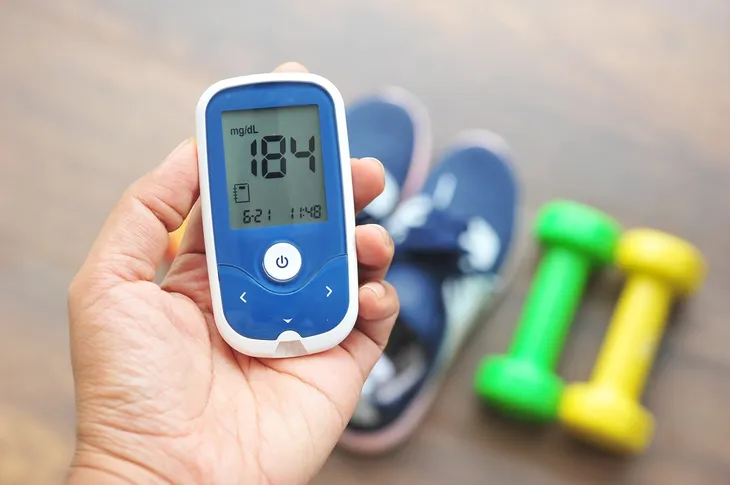Living with type 1 diabetes can be a struggle. Without many of the naturally-occurring mechanisms that help your body function at its best, people with type 1 diabetes have a stricter set of rules they have to live by. As a result, it’s not uncommon for diabetics to feel overwhelmed when it comes to managing their condition. Be that as it may, with the guidance of medical professionals, there are several things people can do to make living with type 1 diabetes much more manageable on a day-to-day basis.
Eat the Right Foods
Regardless of whether or not you have type 1 diabetes, what you eat affects your blood sugar. However, because people with type 1 diabetes can’t produce the hormone that naturally regulates glucose and blood sugar after eating, it’s important to understand how different foods affect your blood sugar so that you know how much medication is needed when eating different foods. If the food-to-hormone ratio is off, it can negatively affect your blood sugar levels, which can result in all sorts of complications.
Specifically, carbohydrates (sugar, bread, etc.) are often what cause your blood sugar levels to most-harshly spike. To help keep your levels in a manageable range, stick to low-fat, high-fiber foods such as fruits, vegetables, and whole grains. Of course, your doctor or dietitian can recommend foods more specifically tailored to your age, activity level, schedule, and food preferences.
Monitor Blood Sugar
Monitoring blood sugar levels is a necessary part of life for type 1 diabetics. It not only helps you understand how well the other parts of your diabetes treatment are working, but it also allows you to see how different factors like food and exercise affect your blood sugar levels. With this in mind, you can learn how to keep your levels in a healthy range that makes you feel good and reduces the risk of developing more serious complications down the road.
Depending on how much your doctor prescribes you of the hormone that regulates glucose in your blood, you may have to monitor and record your blood sugar level at least four times a day. To be safe, the American Diabetes Association recommends testing blood sugar levels before meals and snacks, before bed, before exercising or driving, and any time you suspect you may have low blood sugar.
This is because your blood sugar levels can fluctuate unpredictably, even when following a routine eating and hormone administering schedule. Among other things, your levels can be affected by food, activity, illness, medications, stress, hormonal changes, and alcohol.
Fortunately, if you don’t like the idea of manually pricking yourself multiple times a day to check your levels, you can talk to your doctor about using a continuous glucose monitoring (CGM) instead. This monitor attaches to your body using a fine needle just under the skin that checks blood glucose level every few minutes. However, CGM is not yet considered to be as accurate as standard blood sugar monitoring, so checking your blood sugar levels manually is still recommended.
Take Other Recommended Medications
Other than being prescribed the hormone that allows the body to use glucose for energy, you may be required to take additional medications when it comes to treating your type 1 diabetes. These medications may include:
- High Blood Pressure Medications: Angiotensin-converting enzyme (ACE) inhibitors or angiotensin II receptor blockers (ARBs) are often prescribed to help keep kidneys healthy for people who have blood pressures above 140/90-millimeters of mercury (mm Hg).
- Cholesterol-Lowering Drugs: Due to people with diabetes having an elevated risk of heart disease, these drugs are prescribed to help keep cholesterol within The American Diabetes Association’s recommendations.
- Aspirin: Aspirin is often recommended for diabetes patients to help protect their hearts (which are more susceptible to heart disease).
These medications are often recommended due to type 1 diabetes making you more susceptible to certain complications like: coronary artery disease with chest pain (angina), heart attack, stroke, narrowing of the arteries (atherosclerosis), and high blood pressure.
Exercise
Exercise can help keep blood sugar levels in a healthy range and reduce the risk of other health problems like heart disease (something diabetics may be more likely to get). However, just as eating too many carbohydrates can cause your blood sugar levels to rise too high (resulting in hyperglycemia), too much exercise can cause them to dip too low (resulting in hypoglycemia).
Dr. Lorena Alarcon-Casas Wright, an endocrinologist and assistant professor of medicine at the University of Washington, recommends the following three tips:
- During any meal that comes before exercise, give yourself half the amount of the hormone that regulates glucose in the blood so there is less on board during exercise.
- Check blood sugar levels before and after exercising.
- Keep a carb-rich snack handy in case blood sugar gets low.
Before starting any new exercise regimen, it’s important to consult with your doctor because you may need to adjust your meal plan or hormone doses to compensate for the increased activity.
Manage Stress
Stress causes your blood sugar levels to rise. Not only can this negatively affect diabetes, but it can also cause you to neglect exercise, a healthy diet, and even forget to take your medication. Whether it’s through exercise, hobbies, meditation, deep breathing, or yoga, it’s important to find ways to alleviate stress; not just for the treatment of your diabetes, but for your health in general.
Stop Smoking
This should go without saying, but quitting smoking certainly will help the treatment of your diabetes. This is especially true when you consider the fact that people with diabetes are more likely to have health problems like heart disease, eye disease, stroke, kidney disease, blood vessel disease, nerve damage, and foot problems. Smoking is bound to increase the likelihood of experiencing these problems even more.
Plus, smoking can make it more difficult to exercise – an essential component of diabetes treatment.
Watch Your Alcohol
Carbohydrate-heavy alcohol drinks like beer, wine, and certain mixed liquors can significantly spike your blood sugar. Cutting these drinks out, or significantly cutting back on them can help manage your levels much easier. For reference, the American Diabetes Association recommends a maximum of one drink a day for women and two for men.
To be safe, check your blood sugar before you drink and try to eat as your drink. An empty stomach can result in faster spikes in your blood sugar.










